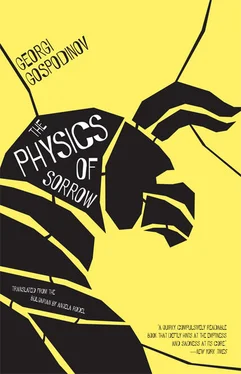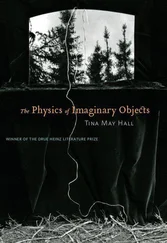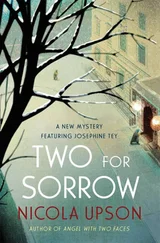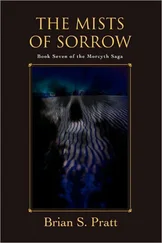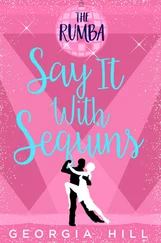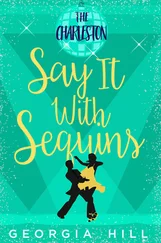While he tells this story, the Minotaur bows his head, as if the story has nothing to do with him, only making a soft throaty sound from time to time. The same as I made with my locked lips.
Now show ’em how you drink water, the master orders and the Minotaur, with visible displeasure, falls to his knees, dunks his head into the bucket and slurps noisily. Now say hello to these good people. The Minotaur is silent, looking down. Say hello to these people, the man repeats once again. Now I see that in one hand he is holding a staff with a sharp spike on one end. The Minotaur opens his mouth and growls out what is more likely a deep, raspy, unfriendly Mooooo.
With that, the show ends.
I turn around before leaving the tent (last), and for an instant our eyes meet again. I will never be able to escape the feeling that I know that face from somewhere.
Outside I realize that my mouth is still locked shut, and my cap is torn. I dash toward the stand, but there is no trace of the sorcerer. That’s how I left the memory, or rather, that’s how I left my twelve-year-old grandfather. With locked lips and a torn cap. But why would he hide his visit to the Minotaur in his story?
MOOOO
I didn’t ask anything then, because he would’ve realized that I could get inside other people’s memories, and that was my biggest secret. And I hated the Yellow House, where they would’ve taken me, just like they’d taken Blind Mariyka, because she saw things that would happen.
Nevertheless, I very secretly managed to find out something from Grandfather’s sisters, seven in number, who came to see him every summer until the end of their lives, skinny, dressed in black, dry as grasshoppers. One afternoon I cornered the eldest and chattiest of them and casually began asking her what grandpa had been like as a child. I had bought her candy and lemonade in advance — they all were crazy about sweets — and thus got the whole story.
It was then that I learned that as a boy, my grandfather had suddenly gone mute. He had come back from the village fair and could only moo, he couldn’t utter a single word. Their mother took him to Granny Witch to “pour him a bullet.” She took one look at him and declared — this child has had quite a fright, I’ll have you know. Then she took a bit of lead, poured it into an iron mug, heated it up over the fire until it melted and started sizzling. In “pouring a bullet,” the lead takes on the form of whatever has frightened you. The fear enters the lead. Afterward you sleep with it under your pillow for several nights and then you throw it into a river, into running water, to carry the fear far away. Granny Witch poured the bullet three times and all three times a bull’s head appeared, with horns, a snout, everything. Some bull at the fair had scared him, said Grandpa’s sister, they’d go there to sell animals from the neighboring villages, buffalo, cattle, sheep, whole herds. For six months he didn’t utter a word, only mooed. Granny Witch came nearly every day, burned herbs over him like incense, they held him upside down over the crumbs of dinner to make the fear fall out of him. They even slaughtered a young calf and made him watch, but his eyes rolled up into his head, he fainted and didn’t see a thing. It cleared up on its own after six months. He came into the house one day and said: “Mom, come quick, Blind Nera has calved.” They had a cow by that name. And so his lips were unlocked. Of course, most of the details came from my smuggled entry into my great-aunt’s memory. Her name was Dana. She was hiding one other story, whose corridors I had already secretly slipped into.
THE BREAD OF SORROW
I see him clearly. A three-year-old boy. He has fallen asleep on an empty flour sack, in the mill yard. A heavy bee buzzes close above him, making off with his sleep.
The boy opens his eyes just a crack, he’s still sleepy, he doesn’t know where he is.
I open my eyes just a crack, I’m still sleepy, I don’t know where I am. Somewhere in the no-man’s-land between dream and day. It’s afternoon, precisely that timelessness of late afternoon. The steady rumbling of the mill. The air is full of tiny specks of flour, a slight itching of the skin, a yawn, a stretch. The sound of people talking can be heard, calm, monotone, lulling. Several carts stand unyoked, half-filled with sacks, everything is sprinkled with that white dust. A donkey grazes nearby, his leg fettered with a chain.
Sleep gradually recedes completely. That morning in the darkness they had come to the mill with his mother and three sisters. He had wanted to help with the sacks, but they wouldn’t let him. Then he had fallen asleep. They’re surely ready to go by now, they’ve finished everything without him. He gets up and looks around. They are nowhere to be seen. Now here come the first steps of fear, still imperceptible, quiet, merely a suspicion that is rejected immediately. They’re not here, but they must be inside or on the other side of the mill, or they’re sleeping in the shade under the cart.
The cart isn’t there, either. That light-blue cart with a rooster painted on the back.
And then the fear wells up, filling him, just like when they fill the little pitcher at the well, the water surges, pushing the air out and overflowing. The stream of fear is too strong for his three-year-old body and it fills up quickly, soon he will have no air left. He cannot even burst into tears. Crying requires air, crying is a long, audible exhalation of fear. But there is still hope. I run inside the mill, here the noise is very loud, the movements hasty, two white giants pour grain into the mill’s mouth, everything is swathed in a white fog, the enormous spider webs in the corners are heavy with flour, a ray of sunlight passes through the high, broken windows, and in the length of that beam the titanic dust battle can be seen. His mother isn’t here. Nor any of his sisters. A hulking man stooped under a sack almost knocks him over. They holler at him to go outside, he’s in the way.
Mommy?
The first cry, it’s not even a cry, it ends in a question mark.
Moommy?
The “o” lengthens, since the desperation is growing as well.
Mooommy. Mooooooommy.
The question has disappeared. Hopelessness and rage, a crumb of rage. What else is inside? Bewilderment. How could this be? Mothers don’t abandon their children. It’s not fair. This just doesn’t happen. “Abandon” is a word he doesn’t yet know. I don’t yet know. The absence of the word does not negate the fear, on the contrary, it heaps up ever higher, making it even more intolerable, crushing. The tears begin, now it’s their turn, the only consolers. At least he can cry, the fear has uncorked them, the pitcher of fear has run over. The tears stream down his face, down my face, they mix with the flour dust on the face, water, salt, and flour, and knead the first bread of grief. The bread that never runs out. The bread of sorrow, which will feed us through all the coming years. Its salty taste on the lips. My grandfather swallows. I swallow, too. We are three years old.
At the same time, a light-blue cart with a rooster on the back raises a cloud of dust, getting farther and farther away from the mill.
The year is 1917. The woman driving the cart is twenty-eight years old. She has eight children. Everyone says that she was a large, fair, and handsome woman. Her name also confirms this. Calla. Although in those days it’s unlikely that anyone had deduced its meaning from the Greek — beautiful. Calla and that was that. A name. It’s wartime. The Great War, as they call it, is nearing its end. And as always, we’re on the losing side. The father of my three-year-old grandfather is somewhere on the front. He’s been fighting since 1912. There’s been no news of him for several months. He comes back for a few days, makes a child, and leaves. Could they have been following orders during those home leaves? The war is dragging on, they’re going to need more soldiers. He didn’t have much luck with future soldiers, he kept having girls — seven in all. Surely when he returned to his regiment they would arrest him for every one of them.
Читать дальше
